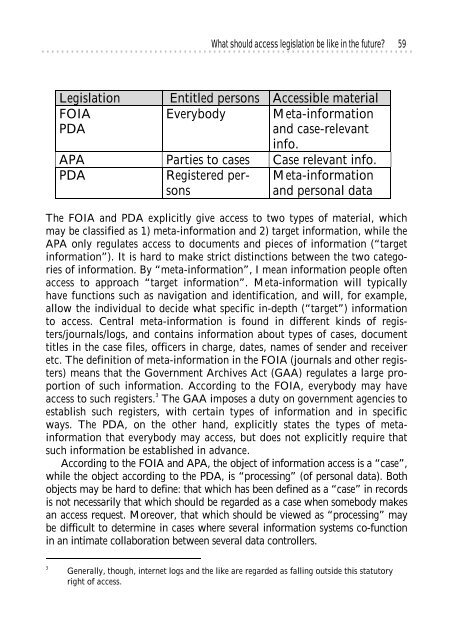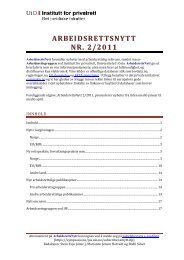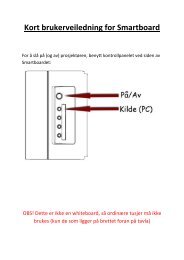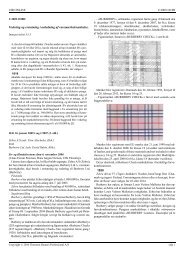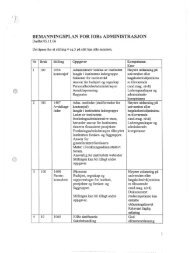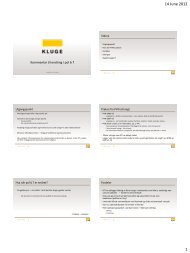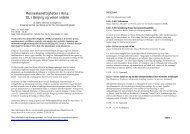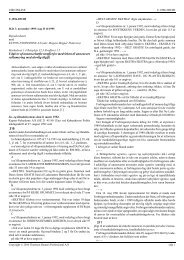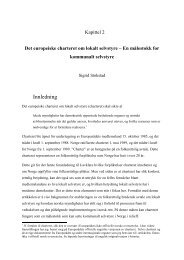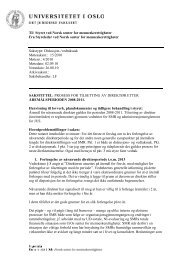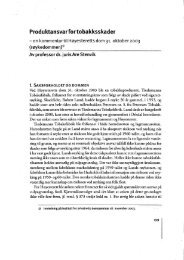Lee A. Bygrave (red.) YULEX 2002 - Universitetet i Oslo
Lee A. Bygrave (red.) YULEX 2002 - Universitetet i Oslo
Lee A. Bygrave (red.) YULEX 2002 - Universitetet i Oslo
Create successful ePaper yourself
Turn your PDF publications into a flip-book with our unique Google optimized e-Paper software.
............................................................................<br />
What should access legislation be like in the future? 59<br />
Legislation Entitled persons Accessible material<br />
FOIA<br />
PDA<br />
Everybody Meta-information<br />
and case-relevant<br />
info.<br />
APA Parties to cases Case relevant info.<br />
PDA Registe<strong>red</strong> persons<br />
Meta-information<br />
and personal data<br />
The FOIA and PDA explicitly give access to two types of material, which<br />
may be classified as 1) meta-information and 2) target information, while the<br />
APA only regulates access to documents and pieces of information (“target<br />
information”). It is hard to make strict distinctions between the two categories<br />
of information. By “meta-information”, I mean information people often<br />
access to approach “target information”. Meta-information will typically<br />
have functions such as navigation and identification, and will, for example,<br />
allow the individual to decide what specific in-depth (“target”) information<br />
to access. Central meta-information is found in different kinds of registers/journals/logs,<br />
and contains information about types of cases, document<br />
titles in the case files, officers in charge, dates, names of sender and receiver<br />
etc. The definition of meta-information in the FOIA (journals and other registers)<br />
means that the Government Archives Act (GAA) regulates a large proportion<br />
of such information. According to the FOIA, everybody may have<br />
access to such registers. 3 The GAA imposes a duty on government agencies to<br />
establish such registers, with certain types of information and in specific<br />
ways. The PDA, on the other hand, explicitly states the types of metainformation<br />
that everybody may access, but does not explicitly require that<br />
such information be established in advance.<br />
According to the FOIA and APA, the object of information access is a “case”,<br />
while the object according to the PDA, is “processing” (of personal data). Both<br />
objects may be hard to define: that which has been defined as a “case” in records<br />
is not necessarily that which should be regarded as a case when somebody makes<br />
an access request. Moreover, that which should be viewed as “processing” may<br />
be difficult to determine in cases where several information systems co-function<br />
in an intimate collaboration between several data controllers.<br />
3<br />
Generally, though, internet logs and the like are regarded as falling outside this statutory<br />
right of access.


